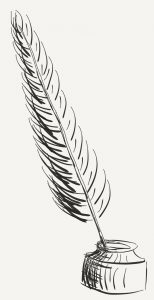
Charles Lamb reveals himself to the reader through his essays
I was curious about Charles Lamb after references to him in Guernsey Literary and Potato Peel Pie Society and I was surprised at how enjoyable The Essays of Elia and The Last Essays of Elia actually were. Published in magazines over 13 years from 1822, they span topics ranging from reminiscences about childhood, reflections about retirement, theatre and poetry criticism through to character sketches. Although published under a false name and fictitious biography, much of their charm is the sense they give of spending half an hour with their author, whose gentle humour, social observation, keen descriptive ability and delightful language make him a thoroughly enjoyable companion. The distance in time and my lack of classical education did leave me with a sense that I was missing some of the humour, satire and allusions but what I could pick up was enough to ensure my enjoyment. I was completely unfamiliar with the referents of some of the essays. This particularly limited my enjoyment of his poetry criticism but had surprisingly little impact on my enjoyment of his character sketches. His reflections on manners and different aspects of social life were also thoroughly enjoyable, even from this distance.

Spending time with a delightful dead guy: The Essays of Elia by Charles Lamb
Charles Lamb reveals himself to the reader through his essays
I was curious about Charles Lamb after references to him in Guernsey Literary and Potato Peel Pie Society and I was surprised at how enjoyable The Essays of Elia and The Last Essays of Elia actually were. Published in magazines over 13 years from 1822, they span topics ranging from reminiscences about childhood, reflections about retirement, theatre and poetry criticism through to character sketches. Although published under a false name and fictitious biography, much of their charm is the sense they give of spending half an hour with their author, whose gentle humour, social observation, keen descriptive ability and delightful language make him a thoroughly enjoyable companion. The distance in time and my lack of classical education did leave me with a sense that I was missing some of the humour, satire and allusions but what I could pick up was enough to ensure my enjoyment. I was completely unfamiliar with the referents of some of the essays. This particularly limited my enjoyment of his poetry criticism but had surprisingly little impact on my enjoyment of his character sketches. His reflections on manners and different aspects of social life were also thoroughly enjoyable, even from this distance.